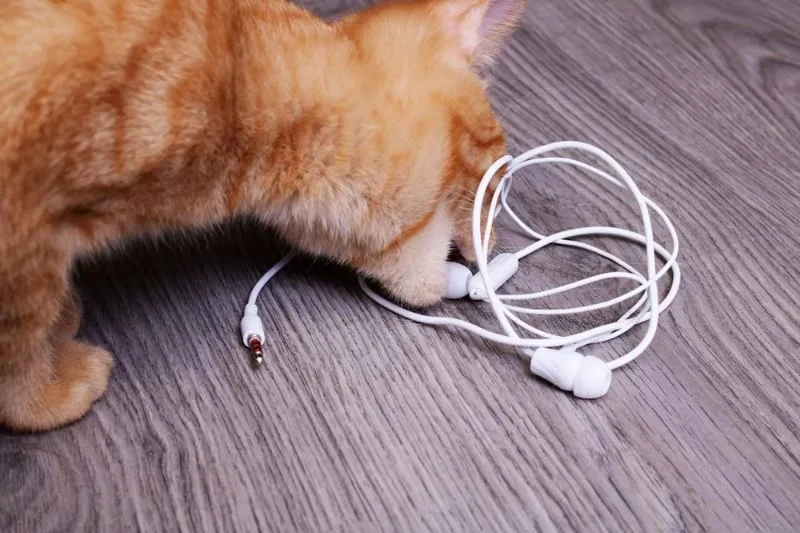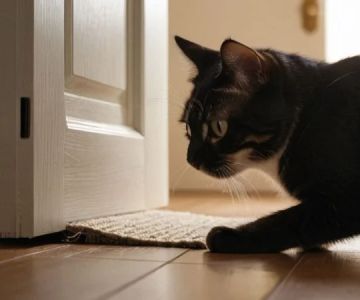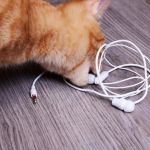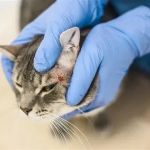
Why Do Kittens Chew on Books?
If you've recently welcomed a kitten into your home, you might have noticed an unexpected habit: chewing on books. While it may seem odd, this behavior is actually quite common among young cats, especially kittens. Understanding why your kitten chews on books is the first step in addressing the issue and preventing it from becoming a regular habit.

Northford Veterinary Clinic
North BranfordSouth Central Connecticut Planning RegionConnecticut
1411 Middletown Ave, Northford, CT 06472, USA
1. Teething Phase
Just like human babies, kittens go through a teething phase when their baby teeth fall out and their adult teeth come in. This period can be uncomfortable, and chewing on things provides relief. Books, with their soft pages and interesting textures, can be particularly enticing for a teething kitten.

Dighton Rehoboth Animal Hospital, Inc
DightonBristol CountyMassachusetts
2424 Winthrop St, North Dighton, MA 02764, USA
2. Exploration and Curiosity
Kittens are naturally curious creatures. Everything they encounter is a potential toy or something to explore with their mouth. Books, often sitting in an easily accessible spot, attract their attention. The smell of the paper, the texture of the pages, or even the sounds of tearing might make it irresistible for your kitten.
3. Boredom or Stress
If your kitten isn't receiving enough stimulation or is feeling stressed, they may chew on books and other objects as a coping mechanism. This is especially true for kittens who are left alone for long periods of time without sufficient interaction, exercise, or enrichment.
How to Stop Your Kitten from Chewing on Books
Now that you know why your kitten might be chewing on books, it’s time to explore effective strategies to stop this behavior. With some patience and consistent training, you can teach your kitten not to chew on books and redirect their energy to more appropriate outlets.
1. Provide Chew Toys and Alternatives
The most direct way to stop your kitten from chewing on books is to offer them more suitable chewing alternatives. Invest in a variety of kitten-safe chew toys, such as rubber toys, teething rings, or even soft, plush toys that mimic the texture of books. When your kitten begins chewing on a book, gently redirect them to the toy. Over time, they'll start associating these toys with chewing, rather than your prized books.
2. Use Positive Reinforcement
Positive reinforcement is key to training your kitten. Whenever your kitten chooses to chew on their toys instead of your books, praise them enthusiastically. Offering a treat as a reward can also be effective. The goal is to make chewing on their toys a rewarding experience, which will gradually deter them from chewing on things they shouldn’t.
3. Redirect Their Attention
If your kitten continues to chew on a book despite your efforts, try redirecting their attention. Use a soft, non-scolding voice to say “no” or “stop,” and immediately replace the book with a toy. If your kitten begins chewing on something they shouldn’t, gently but firmly move them away and encourage them to play with their appropriate items instead. This helps reinforce boundaries without creating negative associations with punishment.
4. Keep Books Out of Reach
One of the most effective solutions is to simply remove temptation. If you notice your kitten has a particular fondness for a certain book or shelf, try to keep books out of reach by storing them in higher spots or closed bookcases. This prevents your kitten from having access to your books when you're not around to supervise.
5. Create a Stress-Free Environment
As mentioned earlier, stress and boredom can lead to undesirable chewing behaviors. Ensure your kitten has a comfortable, enriching environment with plenty of toys, scratching posts, and interactive playtime. Play sessions with a feather toy or a laser pointer can provide much-needed stimulation, allowing your kitten to expend their energy in healthy ways. You can also try using calming products like pheromone diffusers to reduce stress and anxiety, which may help curb the chewing behavior.
6. Teaching Boundaries
Teaching your kitten basic boundaries is an important part of behavior training. If your kitten tries to chew on books, you can gently tap the book to make a sound that distracts them. Then immediately redirect them to a toy. Consistency is crucial here—if your kitten continues the behavior, be firm but gentle in redirecting them. Eventually, your kitten will learn that books are off-limits.
When to Seek Professional Help
Most kittens will stop chewing on books once they've passed the teething phase or after you’ve successfully redirected their attention to other activities. However, if the chewing becomes excessive or is coupled with other concerning behaviors, it may be time to consult a veterinarian or a professional animal behaviorist. They can help determine if there’s an underlying medical or behavioral issue that needs addressing.
If you’re looking for more resources or training tools to help with your kitten’s behavior, be sure to check out Omnia Pet, where you can find a variety of pet products designed to enrich your kitten’s life and help manage common behavior challenges.







 Pet's Best Friend Veterinary Hospital4.0 (535 reviews)
Pet's Best Friend Veterinary Hospital4.0 (535 reviews) Howdy Pup Treats5.0 (2 reviews)
Howdy Pup Treats5.0 (2 reviews) Bark and Blu0.0 (0 reviews)
Bark and Blu0.0 (0 reviews) Small Animal Surgical Service of CT5.0 (17 reviews)
Small Animal Surgical Service of CT5.0 (17 reviews) Acton Veterinary Clinic4.0 (71 reviews)
Acton Veterinary Clinic4.0 (71 reviews) Four Paws Hotel and Spa4.0 (23 reviews)
Four Paws Hotel and Spa4.0 (23 reviews) Understanding Hyperthyroidism in Cats: Treatment Options and Diet
Understanding Hyperthyroidism in Cats: Treatment Options and Diet The Top 10 Most Playful Kitten Breeds for Families
The Top 10 Most Playful Kitten Breeds for Families A Guide to Feline Cancer: Common Types and Symptoms Every Cat Owner Should Know
A Guide to Feline Cancer: Common Types and Symptoms Every Cat Owner Should Know How to Stop Your Kitten from Chewing on Books: Proven Tips and Solutions
How to Stop Your Kitten from Chewing on Books: Proven Tips and Solutions Best Pet Health Insurance for Cats: A Comprehensive Comparison
Best Pet Health Insurance for Cats: A Comprehensive Comparison How to Help a Kitten with a Cold Sore
How to Help a Kitten with a Cold Sore